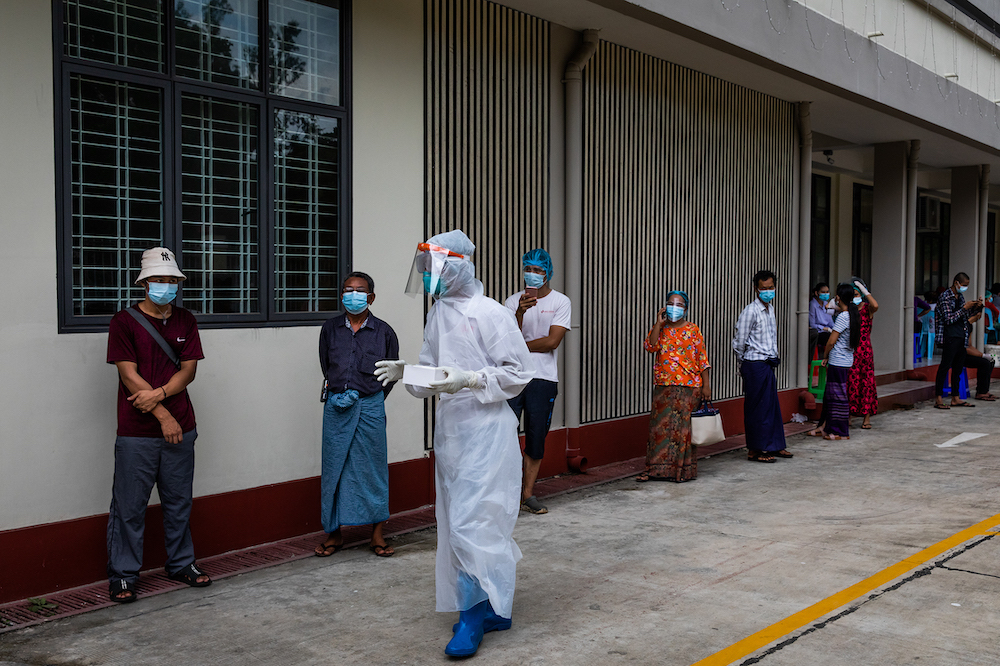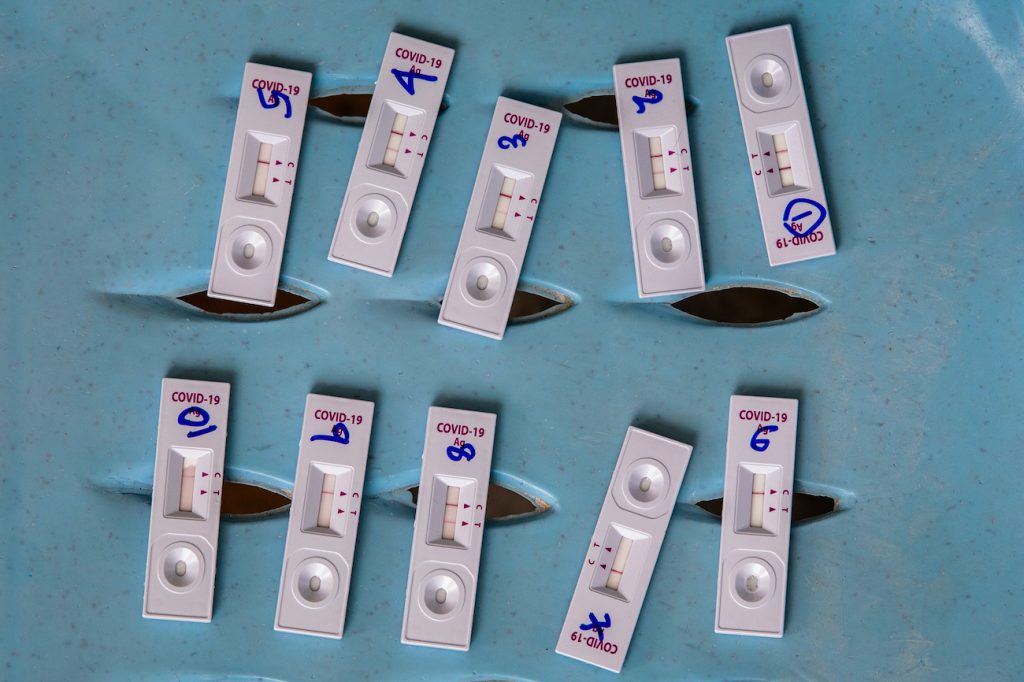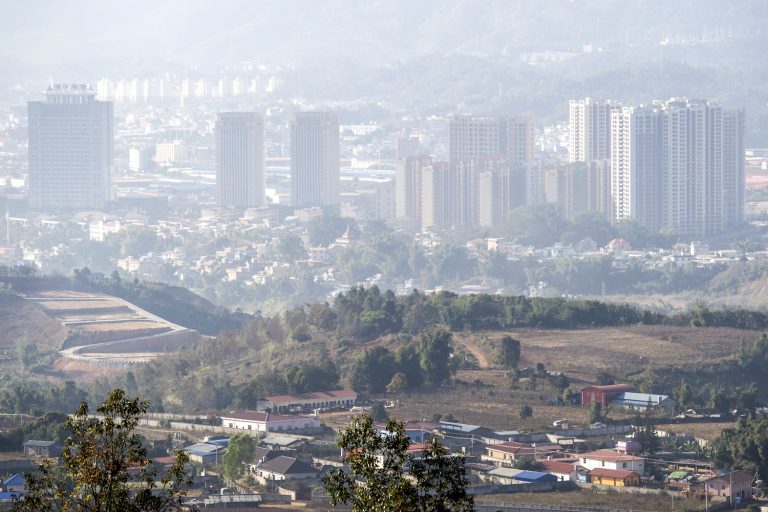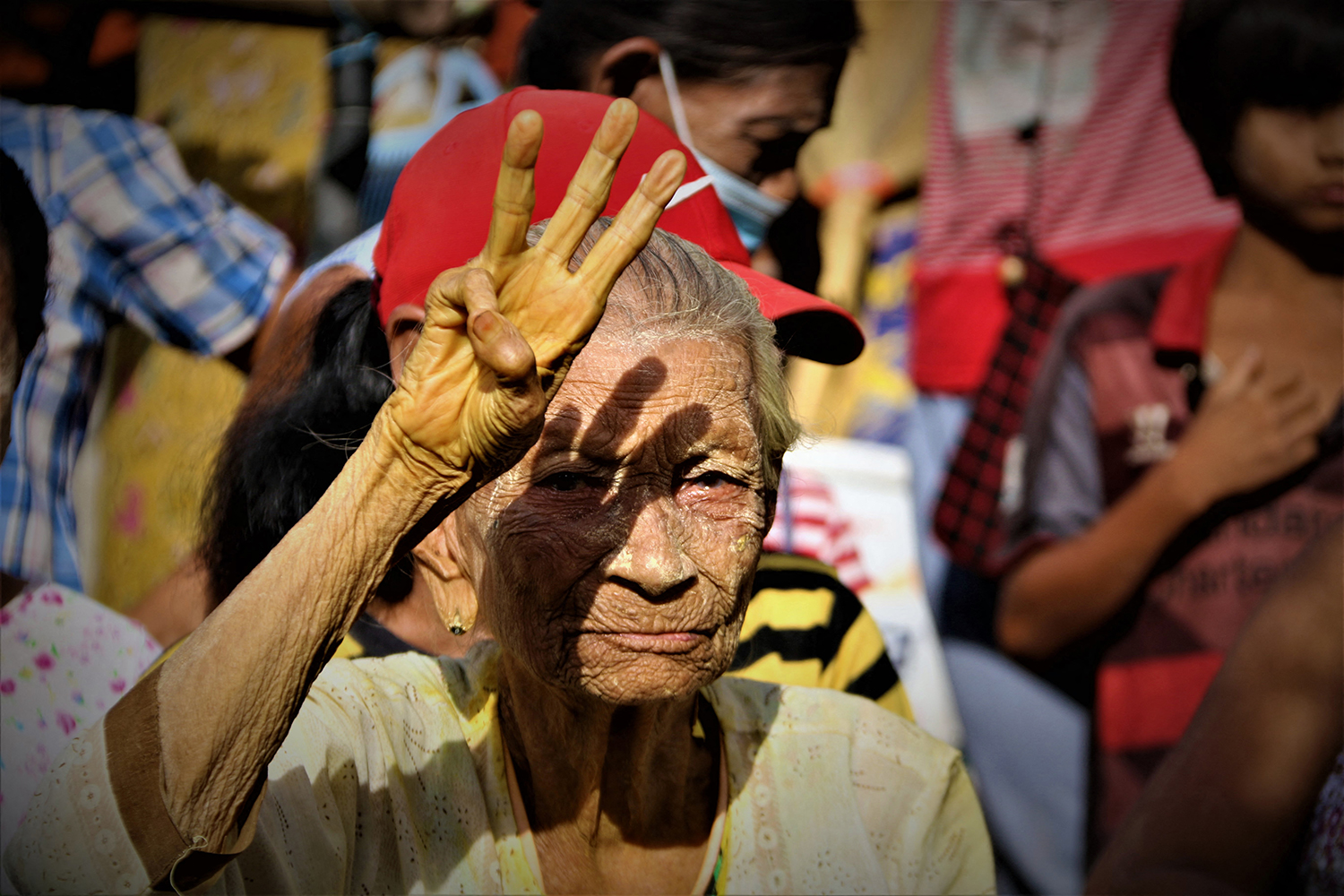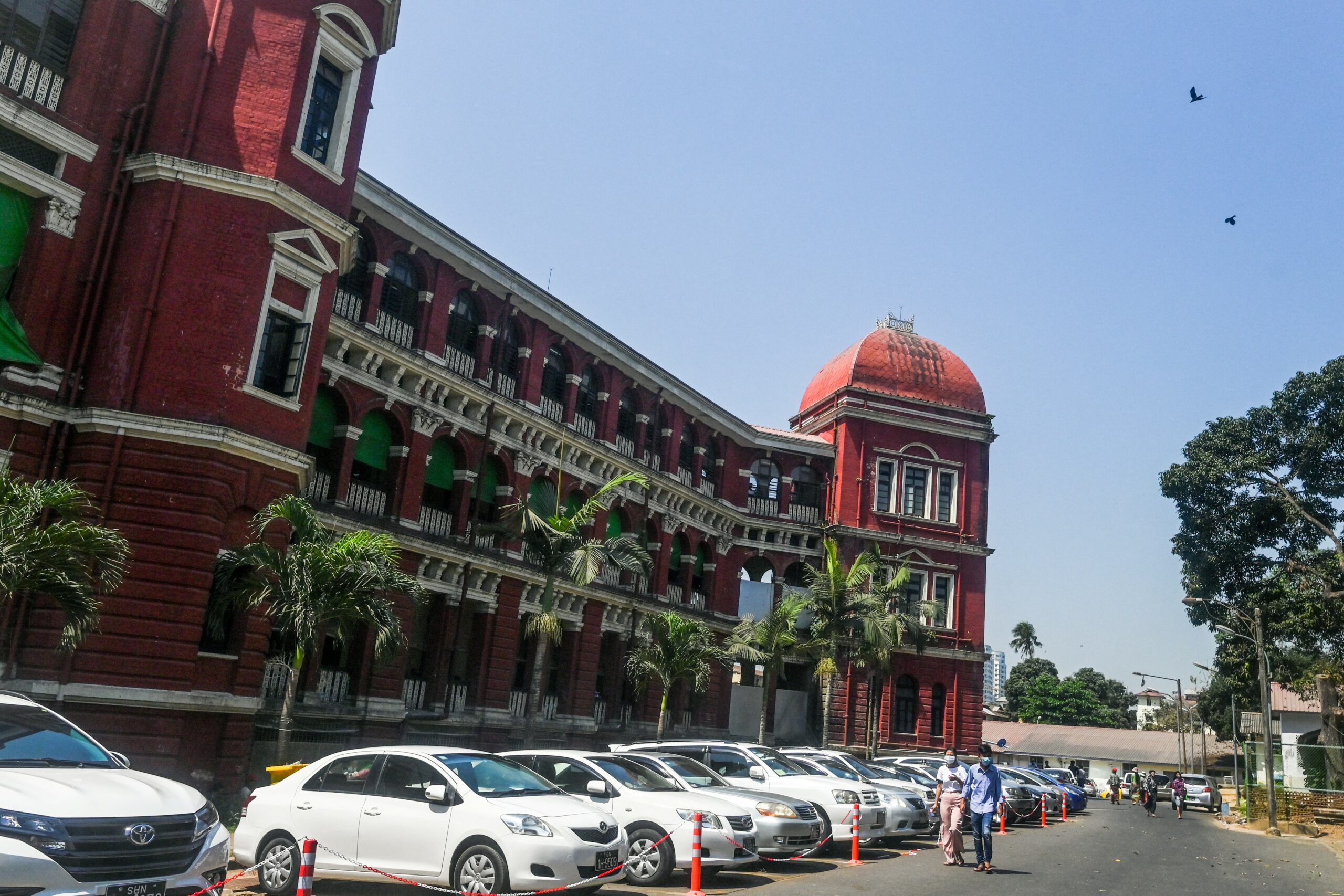The line of people waiting to be tested for COVID-19 snakes down along the side of the Insein Fever Clinic in Yangon. A new shipment of rapid antigen tests are helping to increase testing capacity, but demand is still growing.
By HKUN LAT | FRONTIER
The Ministry of Health and Sports seems to break a new record every day. On October 8, it processed 12,322 COVID-19 tests and found 1,400 new cases – both daily records. That brings the total number of cases to 21,433 since the outbreak began in March, and more than 500 deaths.
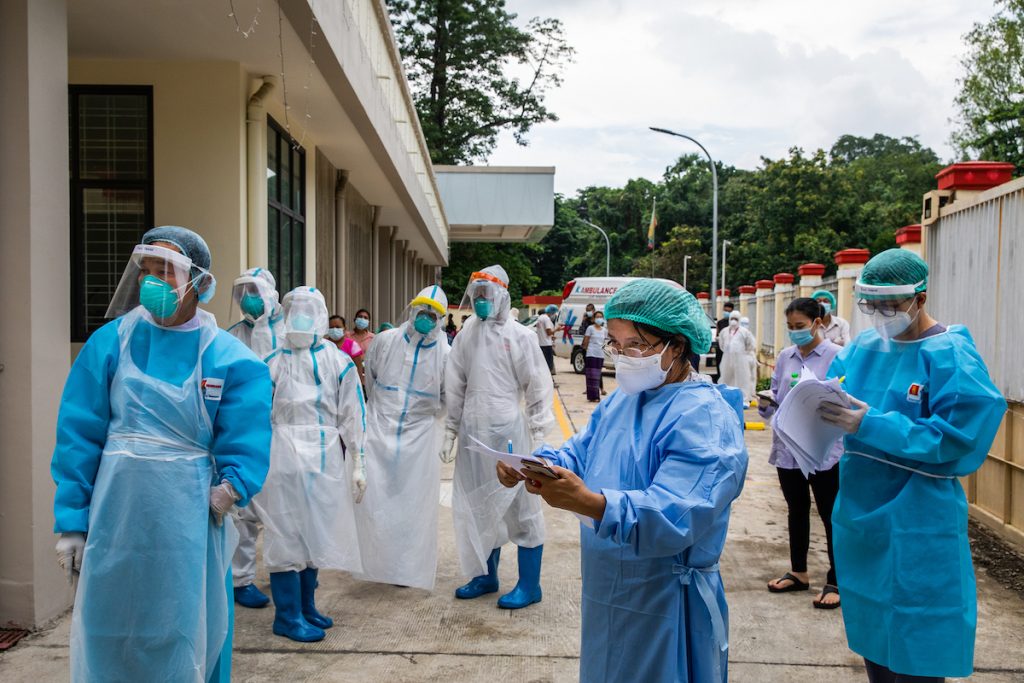
The rise in cases tracks with a ramp up in testing that became apparent the first weekend in October, when the government seems to have began using the 200,000 new antigen rapid test kits it recently bought from South Korea. The tests are said to be capable of returning results within 30 minutes. They’re now in use at the National Health Laboratory in Yangon, but the health ministry says it plans to distribute them throughout the country.
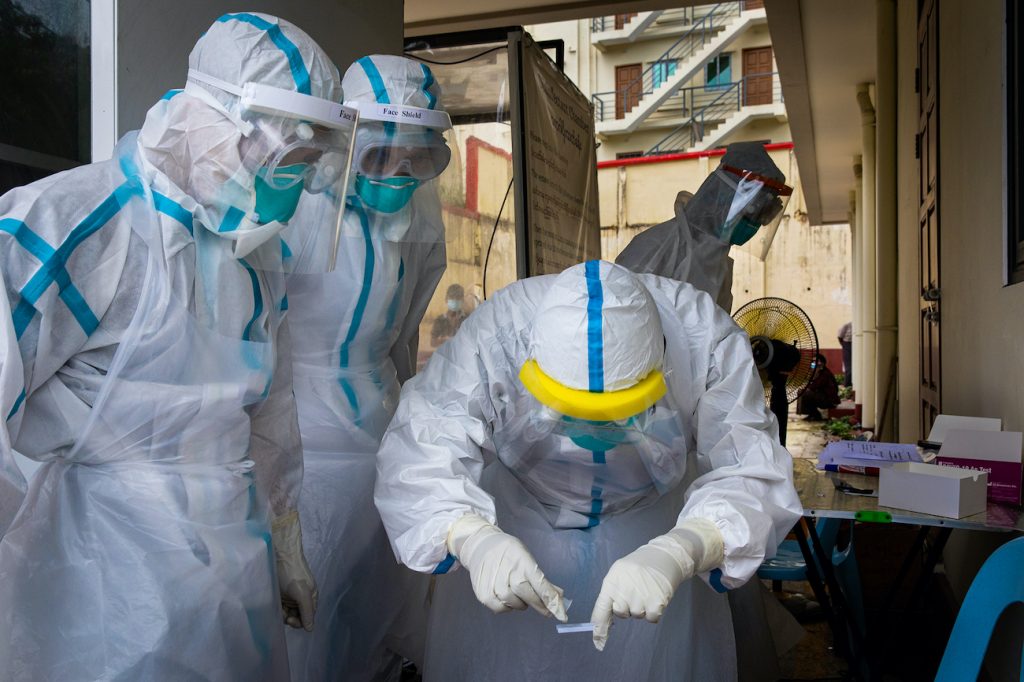
Yangon, however, has seen the overwhelming majority of new cases, which are straining an already-fragile healthcare system. In an effort to ease the burden on hospitals, the health ministry established several “fever clinics” throughout the city in April to screen people with possible COVID-19 symptoms, but in late September the “second wave” began overwhelming fever clinics as well. One in North Okkalapa Township had to close its doors for a week. Frontier visited one in Insein Township on October 2, after it had begun testing with the new rapid antigen kits.
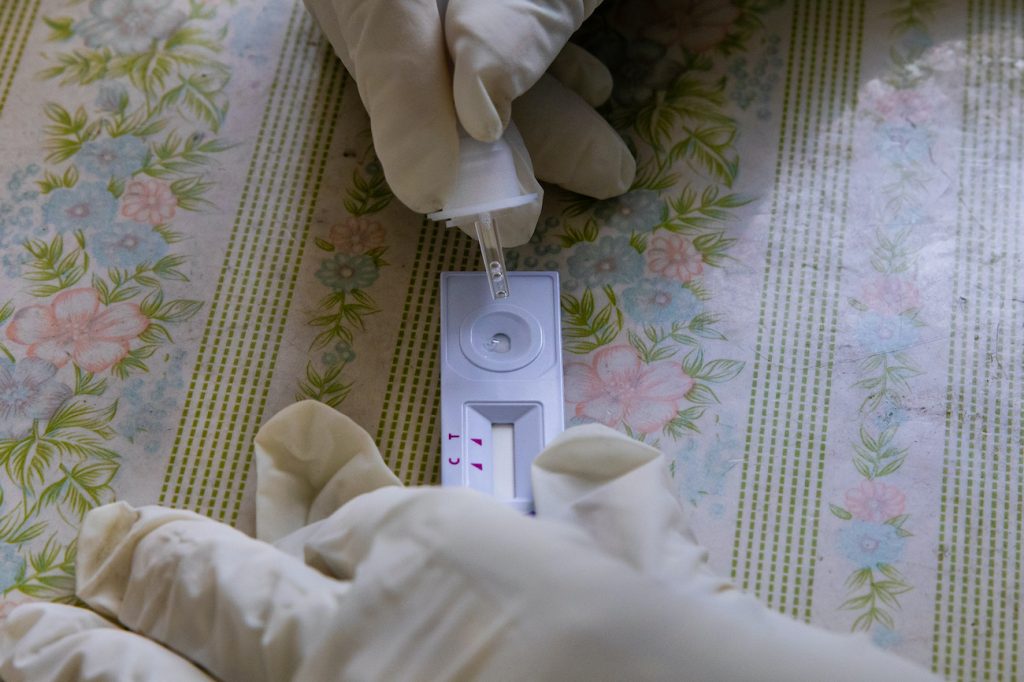
Oddly, toward the end of September, large numbers of people began reporting anosmia. Anecdotes flourished on Facebook of people no longer able to smell being turned away from overwhelmed hospitals. Between October 2 and October 5, for the first time, the health ministry recorded the number of tests done specifically on people reporting the loss of their sense of smell or taste.
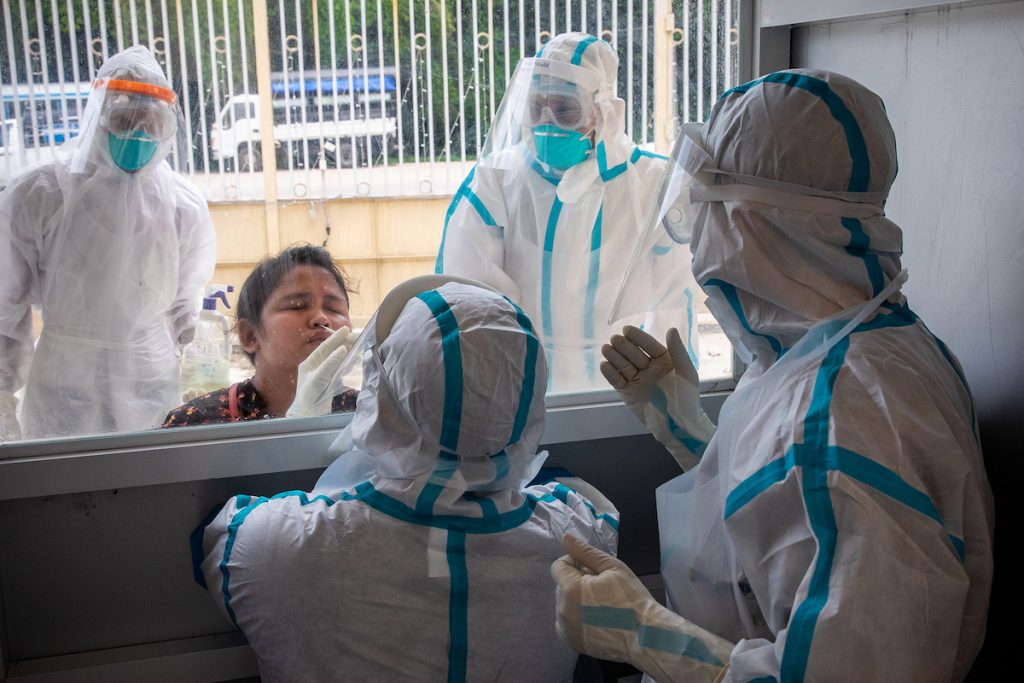
About 18.8 percent – 826 of 4,398 – came out positive. That’s just a few percentage points higher than the general positive test rate on October 5, which was 15pc. The day Frontier visited the clinic in Insein, there was no socialising or asking patients about symptoms, but 23 of the 42 tests conducted while Frontier was there turned out positive. All 23 patients were taken by ambulance to nearby hospitals.
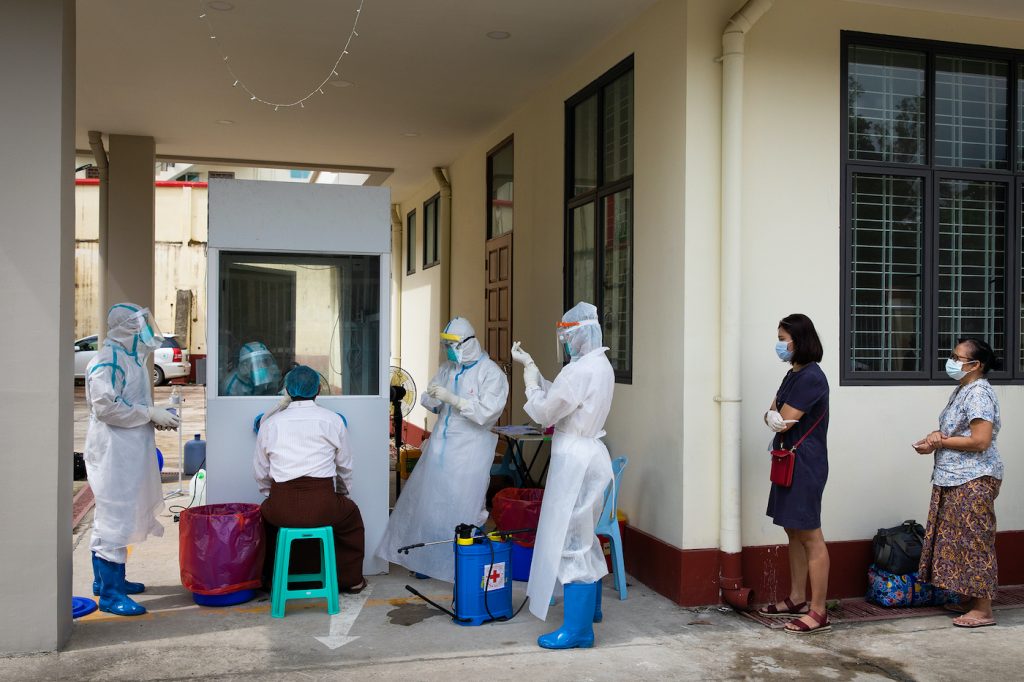
Daily confirmed cases of more than 1,000 are becoming a new norm, attesting to widespread community transmission, but also to the state’s ramped up testing capacity. One silver lining is that, though case numbers are up, the rate of overall positive results is declining. After the roll out of the rapid antigen tests, the test positivity rate dropped from between 15pc and 20pc in late September to just 11pc on October 8.
This is still higher than anyone would like to see, but it is inching in the right direction. Higher rates indicate either wider spread or that not enough testing is being done. With the rate dropping, we may be getting a clearer picture of just how widespread this disease really is in Myanmar.
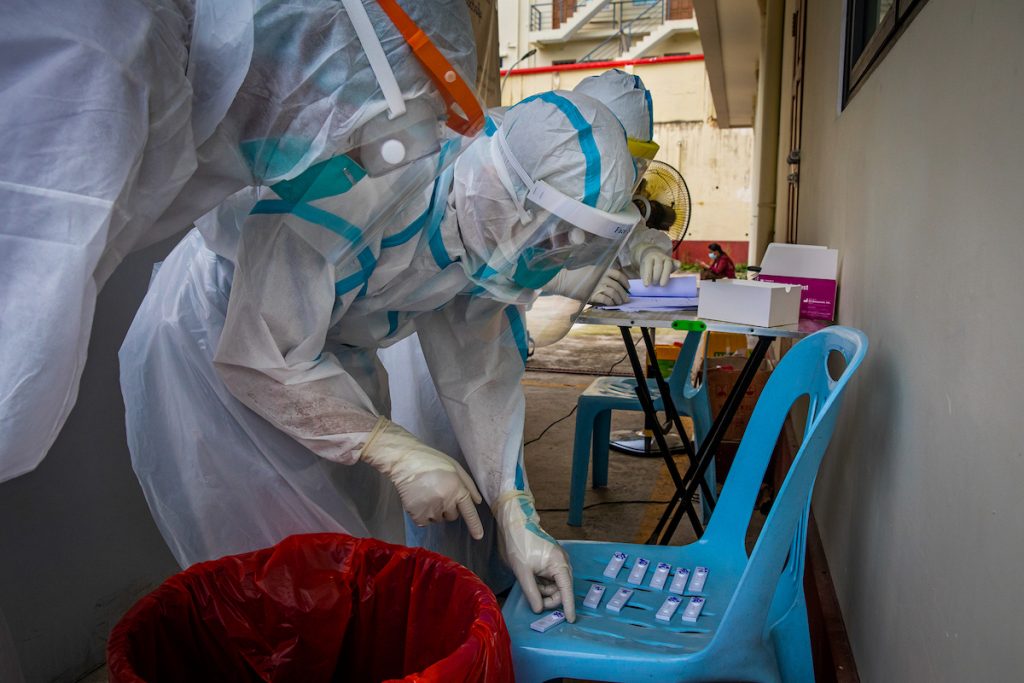
In May, the World Health Organization recommended keeping the test positivity rate below 5pc for at least two weeks before beginning to ease restrictions. As we inch toward and below this level, a more normal life may be able to resume. We are, of course, not there yet. On October 5, the government extended the current shutdown of garment factories until at least October 21.
